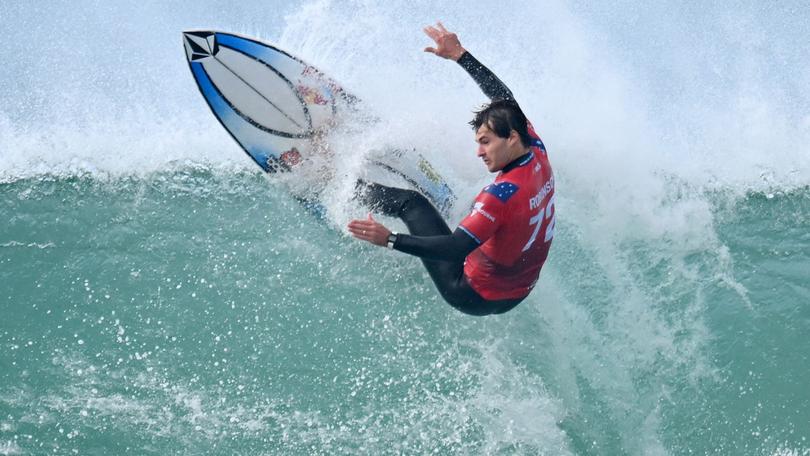Spending slowdown drags Kathmandu, Rip Curl and Oboz owner KMD Brands into the red
The company behind shopping mall mainstay Kathmandu and surfwear brand Rip Curl has pinned a big full-year loss on Australian household belt-tightening and a flailing economy in New Zealand.

The company behind shopping mall mainstay Kathmandu and surfwear brand Rip Curl has pinned a $NZ48.3 million ($44.4m) full-year loss on Australian household belt-tightening and a flailing economy in New Zealand.
KMD Brands chief executive Michael Daly said the retailer, which also owns footwear label Oboz, continued to experience the impact of weaker consumer sentiment.
“I haven’t personally overseen many losses of this nature, so obviously disappointing both as a CEO and as a shareholder of the group,” he told The Nightly.
Sign up to The Nightly's newsletters.
Get the first look at the digital newspaper, curated daily stories and breaking headlines delivered to your inbox.
By continuing you agree to our Terms and Privacy Policy.Results for the year to July 31 released on Wednesday showed group sales plunged 11.2 per cent to $NZ979.4m, with falls recorded across all three brands. Kathmandu’s performance in New Zealand was an outlier, with sales down 15.2 per cent.
“For Kathmandu . . . we think it’s part to do with consumer and certainly our execution hasn’t been where it needs to be, we do have too much reliance on jackets,” Mr Daly said.
“When we have warm seasons, we hurt and we certainly hurt for the first-half of the FY24 on the back of a warmer winter in Australia in particular.
“We see Kathmandu jackets everywhere this time of the year but it’s hard to absorb that when you’ve got poor performance in sales like we have but it’s just a function of how many jackets can people truly need if it’s a well-made jacket.”
Sales at Kathmandu Australia, KMD’s biggest market, fell 13.9 per cent for the full year. Online sales tumbled 18.9 per cent to $NZ47.7m to be in line with pre-COVID-19 levels.
Rip Curl sales fell 7.3 per cent to $NZ538.9m, helped by a strong performance in Europe, Asia and South America as new stores opened. Online sales rose 8.6 per cent to $NZ37.9m.
But KMD said Oboz had been hit by post-pandemic industry challenges in the North American outdoor footwear category and sales had slumped 20 per cent to $NZ79.4m, with wholesale sales remaining subdued.
The brand copped a goodwill impairment of $NZ40.3m
Despite the “challenging sales environment” as shoppers keep a closer eye on budgets while they await interest rate relief from the Reserve Bank, Mr Daly said Kathmandu had carried momentum from the last quarter of the financial year through to the first eight weeks of 2024-25.
Sales at Kathmandu Australia were up 2.1 per cent year-on-year but the brand in New Zealand was still struggling, with sales down 23.2 per cent.
Mr Daly said he was seeing a light at the end of the tunnel.
“You don’t have to go too far around Auckland, Melbourne or other parts of the world to see a lot of people wearing and using Kathmandu and Rip Curl products,” he said.
“We see no negative trends in terms of the underlying strength of the brands, we just need to make sure we continue to execute on having great, exciting products and great brand campaigns around that.”
